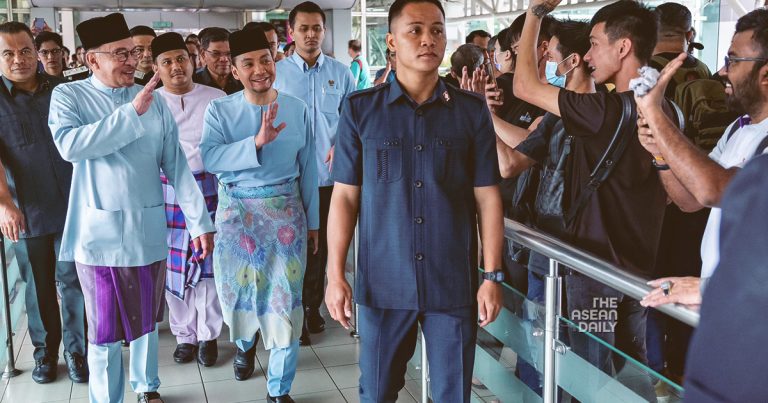25-8-2023 (KUALA LUMPUR) Datuk Seri Anwar Ibrahim has pointed to corruption as a key driver of rising prices for goods and services, as well as delays in delivering projects intended for the public. The Prime Minister reiterated the government’s commitment to combat corruption during a meet-the-people session in Pulai.
Anwar emphasized that government agencies responsible for tackling corruption would continue their investigations into individuals involved in corrupt practices. He provided an example of how corruption can inflate project costs, noting that if the construction of a bridge, initially budgeted at RM200 million, ends up costing RM300 million, it indicates wrongdoing.
While the government can intervene in some matters, Anwar acknowledged that there are areas beyond their control. He cited the example of onions, stating that the Indian government had raised export duties on this produce by 40%. As a result, Malaysia, which imports a significant quantity of onions, is expected to experience price hikes. Anwar noted that the country spends approximately RM70 billion annually on importing agriculture-related products, including seeds.
Switching topics, Anwar revealed that an additional RM50 million had been allocated for Rahmah programs nationwide. This announcement coincided with the upcoming Pulai parliamentary by-election. Pakatan named former Johor state assembly speaker Suhaizan Kaiat as its candidate for the Pulai parliamentary seat. Suhaizan pledged to continue the ‘Rahmah legacy’ initiated by the late Datuk Seri Salahuddin Ayub. The Rahmah initiative, introduced to assist Malaysians, particularly those in the B40 category, in coping with the rising cost of living, garnered praise for Salahuddin’s dedication to the people’s welfare.
Since its launch in January, the Rahmah initiative has seen participation from various restaurants, supermarkets, and hotels. The government also allocated RM100 million earlier this year for the Jualan Rahmah program to be implemented in all 222 parliamentary constituencies nationwide. This initiative aimed to provide basic goods at prices 30% lower than regular retail prices.




